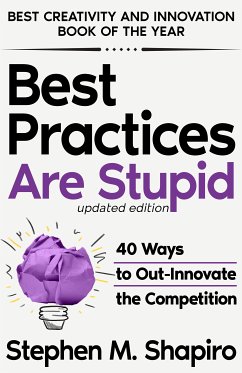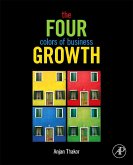What if almost everything you know about creating a culture of innovation is wrong? What if the way you are measuring innovation is choking it? What if your market research is asking all of the wrong questions?
It's time to innovate the way you innovate.
Innovation isn't just about generating occasional new ideas; it's about staying consistently one step ahead of the competition.
Best Practices Are Stupid offers forty counterintuitive yet proven strategies for boosting innovation and making it a repeatable, sustainable, and profitable process at the heart of your company's culture. They include:
Hire people you don't like: Bring in the right mix of people to unleash your team's full potential.
Asking for ideas is a bad idea: Define challenges more clearly. If you ask better questions, you will get better answers.
Don't think outside the box; find a better box: Instead of giving your employees a blank slate, provide them with well-defined parameters that will increase their creative output.
Stop glorifying failure: Looking at innovation as a series of experiments allows you to redefine and minimize failure.
This compact book shows that non-stop innovation is attainable and vital to building a high-performing team, improving the bottom line, and staying ahead of the pack.
Dieser Download kann aus rechtlichen Gründen nur mit Rechnungsadresse in A, B, BG, CY, CZ, D, DK, EW, E, FIN, F, GR, H, IRL, I, LT, L, LR, M, NL, PL, P, R, S, SLO, SK ausgeliefert werden.









